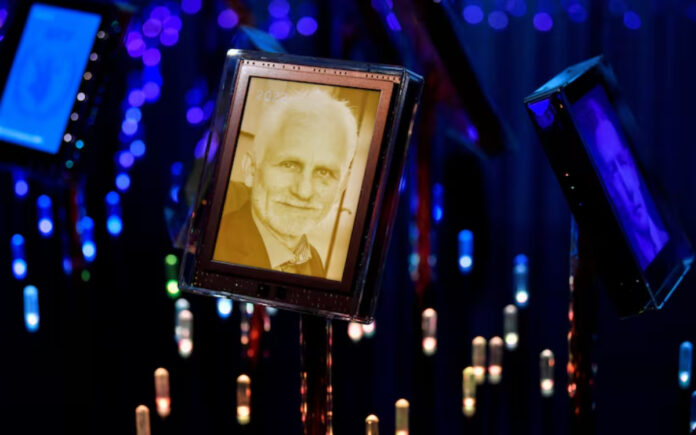Vilnius: Supporters of Ales Bialiatski, the imprisoned Belarusian Nobel Peace laureate, have expressed frustration over his exclusion from the largest East-West prisoner swap since the Cold War, which took place on Thursday. The swap, which involved eight Russians, including a convicted murderer, exchanged for 16 prisoners held in Russian and Belarusian jails—many of whom are dissidents—has left allies of Bialiatski and other imprisoned Belarusians disappointed.
The swap saw the release of several Russian dissidents, including Ilya Yashin, an opposition activist, who voiced anger and dissatisfaction over their forced deportation from Russia. Bialiatski, 61, who is serving a 10-year sentence for financing anti-government protests, was notably absent from the swap. His trial in 2023 was condemned by both the U.S. and the European Union as a “sham.” Bialiatski, awarded the Nobel Peace Prize in 2022, was recognized a year after his arrest.
“When we heard that the deal is imminent, we hoped that someone from Belarus’s political prisoners would surely be a part of it. First of all, of course, the jailed Nobel Peace Prize winner,” said Alena Masliukova, a member of Viasna, the human rights organization founded by Bialiatski. “This was a total disappointment, and we still haven’t overcome it,” added Masliukova, who now resides in exile in Vilnius, Lithuania.
Also Read | EAM Jaishankar Warns India to Prepare for ‘Disruptive’ Changes in the Indian Ocean
Among those released in the recent swap was German citizen Rico Krieger, who had been sentenced to death on terrorism charges in Belarus. According to Viasna, there are currently 1,390 people imprisoned in Belarus for political reasons, many linked to mass protests that occurred four years ago.
Belarusian President Alexander Lukashenko, who has been in power since 1994, faced significant protests following a disputed 2020 presidential election, which marked the largest challenge to his rule. Lukashenko has consistently dismissed allegations of human rights abuses.
Also Read | Anti-Immigration Protests Turn Violent in Sunderland; British Police Ramp Up Security
Viasna reports that activists are still being prosecuted for their roles in the protests, with political prisoners enduring harsh conditions. “They are kept in cold cells, without contact with relatives. They leave jail with damaged health,” Masliukova stated.
Bialiatski returned to Belarus voluntarily from exile in 2021, despite knowing he faced likely arrest. Supporters believe he might be unwilling to leave the country again, as such a process legally requires the prisoner to request a pardon. “I know his character and I am sure there is no way he would ask for a pardon from Lukashenko,” said Siarhei Sys, a long-time friend. “I don’t know what happens in five years … It all depends on the state of his health.”



